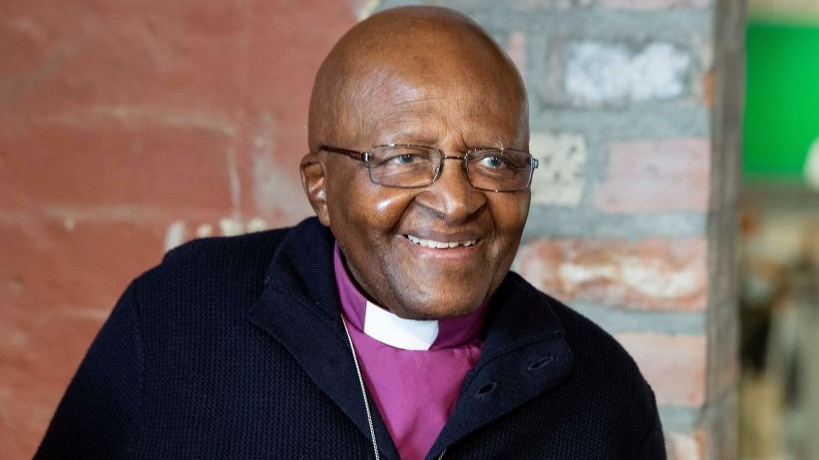South African Archbishop Desmond Tutu died on Dec. 26 at the age of 90. His passing was announced in a statement by South African President Cyril Ramaphosa on Sunday. Tutu was one of the world’s most well-known religious leaders, moral authorities and anti-racist advocates.
A religious and political leader of the anti-apartheid struggle and beyond
Born Desmond Mpilo Tutu in 1931, he became an Anglica deacon in 1960 and priest in 1961 before being named the first Black bishop of Johannesburg in 1984 and then archbishop of Cape Town in 1986. He also served as secretary-general of the South African Council of Churches from 1978-1985, using this platform to vocally oppose apartheid; Tutu also co-founded the United Democratic Alliance. He won the Nobel Peace Prize in 1984 “for his role as a unifying leader figure in the non-violent campaign to resolve the problem of apartheid in South Africa."
Tutu was allies and friends with Nelson Mandela, the famed South African anti-apartheid advocate and eventual Nobel Peace Prize winner. After first meeting as young men in the 1950s, Tutu and Mandela would not see each other face to face for nearly 40 years until Mandela was released from prison in 1990. It was Tutu who accompanied Mandela for his first public speech in 1990 and stood next to him as Mandela was sworn in as the first democratically elected president of South Africa in 1994.
In turn, Mandela appointed Archbishop Tutu to head the country’s Truth and Reconciliation Commission, leading them to exercise an ethic of restorative justice that maintained peace in South Africa and became a model for similar processes around the world. Tutu formally resigned his post as archbishop in 1996 to lead the commission, though he was later named archbishop emeritus of Cape Town. Later in life, Tutu was a founding member and the first Chair of the Elders, a group of prominent world leaders drawn together by Mandela to intervene in some of the most challenging crises facing the world. Under Tutu’s leadership, the Elders promoted dialogue between conflicting sides of conflicts such as those between Israel and Palestine and Sudan and South Sudan.
Tutu received a number of awards and tokens of recognition for his work in promoting peace and reconciliation. In addition to the Nobel Peace Prize, he was awarded the Albert Schweitzer Prize for Humanitarianism in 1986 and the Gandhi Peace Prize in 2007, among other acknowledgments. In 2009, President Barack Obama awarded Tutu the U.S. Presidential Medal of Freedom, one of America’s highest honors. Obama also lauded Tutu as “tribune of the downtrodden, voice of the oppressed, cantor of our conscience.”
No stranger to controversy
Despite his closeness to leaders in South Africa and around the world, Tutu regularly spoke truth to power. Tutu criticized Mandela for political and personal failings, called out South African President Thabo Mbeki for favoring the rich over South Africa’s poor majority and condemned former President Jacob Zuma for corruption. Tutu’s remarks sometimes created distance between him and the leaders he criticized. Zuma excluded the archbishop from having a prominent role in Mandela’s funeral in 2013 and the 2014 celebration of the 20th anniversary of ANC leadership in South Africa.
According to the BBC, Tutu also adopted a number of controversial positions that put him at odds with more conservative religious figures, even within his own church. Tutu was a vocal advocate for LGBTQ+ rights for decades before such views became mainstream in western cultures. At Tutu’s lobbying, in 1996 South Africa became the first country in the world to ban discrimination based on sexual orientation in its constitution, and despite homophobia remaining widespread within the country, it became one of the first to legalize same-sex marriage. However, the Anglican Church often disagreed with Tutu’s position, and the archbishop’s own daughter, Mpho Tutu, was forced to resign as an Anglican priest when she married another woman.
According to The Washington Post, Tutu is survived by Leah Nomalizo Shenxane, his wife of 66 years, as well as their four children. He also leaves behind an unmatched legacy of leadership and activism and an example for future generations to follow as they tackle oppression and wrongdoing. For Archbishop Tutu, such activism was the only moral choice one could make. “
